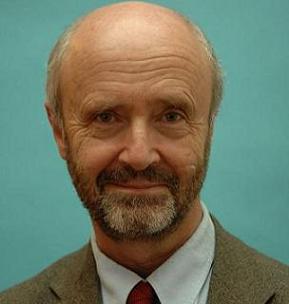- ON THE DECADE
- THE DECADE'S CAMPAIGN
- REPORTING ON PROGRESS
- THE DECADE'S PROGRAMMES
- FOCUS AREAS
-
- Access to sanitation
- Financing water
- Gender and water
- Human right to water
- Integrated Water Resources Management
- Transboundary waters
- Water and cities
- Water and energy
- Water and food security
- Water and sustainable development
- Water and the green economy
- Water cooperation
- Water quality
- Water scarcity
- FOCUS REGIONS
- RESOURCES FOR
- UN e-RESOURCES
International Annual UN-Water Zaragoza Conference 2012/2013
Preparing for the 2013 International Year. Water Cooperation: Making it Happen! 8-10 January 2013
Interviewing Brice Lalonde, Executive coordinator of Rio+20, UNDESA

The future generations will rely on water cooperation. They will be expecting a lot from the participants in the Zaragoza conference
Obviously water was one of the main topics discussed in Rio2012. The conference was about the next twenty years. Not only the world population will be growing from 7 to 8 billion while the amount of freshwater remains the same, but the impact of climate change will be modifying the water patterns and exposing populations to severe droughts or floods where they did not occur before, or not at the same level. After the international community has recognized that access to drinking water and basic sanitation is a human right, the conference acknowledged the major achievement reached recently in the Millennium Development Goal on water, but also the amount of work ahead to make sure water is safe everywhere and, especially, to progress on sanitation, which is significantly lagging, thus putting human’s health, particularly children’s, at high risk. The issue of sanitation was considered one of the priorities for the next decades as recycling wastewater would become one of the major sources of water for replenishing the groundwater, keeping the rivers flowing or irrigating fields around cities. There was no doubt that addressing all these issues would require increased cooperation. Therefore water cooperation came out very high in the Rio+20 debates, not as a legal requirement, but as a very practical and necessary endeavor built around partnerships, capacity building, water distribution, river basin agreements, urban adaptation, improved irrigation systems, early hurricane warning, and so on. Actually the success of the word “nexus” illustrated the general awareness that water was the unifying element linking food, energy, nature but also human beings together.
As you know the Rio+20 conference has asked the international community to define a set of sustainable development goals for the next twenty years. I believe one of these goals could be about water, as it is so crucial. The World Water Forum in Marseilles suggested such a goal could be inspired by the UN Secretary General’s initiative on energy “Sustainable Energy for All”. This initiative encompasses the three dimensions of sustainable development, the social imperative by promoting access, the economic necessity by improving efficiency and the environmental obligation by increasing the share of renewables. We could easily translate this from energy to water. Also member states of the United Nations should get closer to agree on the UN watercourses convention. This convention is all about water cooperation. The general assembly adopted it in 1997, but it is still far from being ratified. It would be useful to understand where the problems lie if they can be solved.
Inaugurating the international year of water cooperation, Zaragoza will shape the landscape by offering examples of cooperation between countries on managing rivers or between different water users like cities and rural areas. Let’s not forget there are more than 200 transboundary river basins around the world. Not only upper riparian people must accommodate the needs of their lower riparian neighbors, but any user must recognize the legitimacy of the other users and join with them to manage the common good. One important user is nature itself who needs water for all its living creatures, but also provides high quality water if her ecosystems are healthy. The conference will describe some tools, institutions and practices that proved successful in enhancing cooperation. This will be invaluable information.
The future generations will rely on water cooperation. They will be expecting a lot from the participants in the Zaragoza conference.
>> Organizers
>> Key questions
>> Expected outcomes
>> Agenda
>> Participants
>> International Year and WWD 2013
>> UN initiatives on water cooperation
>> UN Water Convention
>> UN Watercourses Convention
>> Challenges for water cooperation
>> Addressing cooperation: tools and mechanisms
>> Mediation and dispute resolution mechanisms
>> Alternative Dispute Resolution Approaches
>> Water cooperation: nations and stakeholders
>> Water cooperation in rural areas
>> Water cooperation in cities
>> Interview questions for case study presenters
>> World Water Day 2013
>> World Water Week 2013
>> The UN Global Compact
>> Intensively developed aquifers
>> Stakeholders platforms in Spain
>> Field visits
>> Cases on water cooperation
>> Conference daily
>> Conference flyer
>> Conference interviews
>> Conference poster
>> Information briefs
>> Presentations from participants
>> UN water cooperation reports
>> Video interviews with participants
>> Video recording of sessions
>> Water cooperation in the media
>> Web banners
Copyright | Terms of use | Privacy notice | Site Index | Fraud alert | Help




